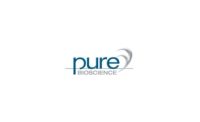The Food Safety and Inspection Service (FSIS), an agency of the United States Department of Agriculture (USDA), announced it will add liquid sodium propionate to the list of approved antimicrobials for use in Ready-to-Eat (RTE) meat and poultry products.
The amended regulation, effective May 6, 2013, will allow RTE meat and poultry manufacturers to use Kemin Industries’ liquid antimicrobial, BactoCEASE, as an alternative to traditional lactates without an in-plant waiver. Until now, lactates have been the primary option for controlling Listeria monocytogenes, a foodborne pathogen that can be deadly and proven difficult to control in RTE meat and poultry. Research studies have shown that lactates perform inconsistently in controlling foodborne pathogens in deli meats.
“This is a game-changer for manufacturers of Ready-to-Eat meat and poultry products and consumers who value the quality and safety of those foods,” shared Kemin President and CEO Dr. Chris Nelson. “It’s also very gratifying to Kemin researchers and scientists who dedicate themselves to providing breakthroughs and ingredients that improve the lives of others.”
BactoCEASE, a propionic acid-based antimicrobial system offers a consistent, cost-effective alternative to help control Listeria monocytogenes, reduce microbial spoilage, extend shelf-life and increase the safety of RTE meat and poultry products. Multiple replications performed showed BactoCEASE consistently inhibited Listeria in turkey, ham and roast beef for an average of 10-12 weeks depending on the meat application.1 Meat treated with lactate-diacetate showed greater than 1 log increase in Listeria populations after four weeks in replication one, and after eight weeks in replication two.2
Not only does BactoCEASE perform more consistently than traditional lactates, it is applied at a lower application rate. This means less ingredient cost per pound of meat produced without negatively impacting the sensory or quality attributes of meat and poultry products.
“Preservatives are necessary to keep RTE meat and poultry products safe from foodborne pathogens, however, consumers do not want to see large amounts in their products,” said Betsy Blades, director of marketing for the food technologies division of Kemin. “Being able to minimize the rates at which the preservatives are applied and maintain product safety is important to meeting consumer demand.”
Kemin, a global leader in liquid propionic acid-based technology, first petitioned FSIS requesting the amendment of 9 CFR 424.21(c) to list liquid sodium propionate as an acceptable antimicrobial agent for use in RTE meat and poultry products in 2010. Under the MOU agreement between the United States Food and Drug Administration (FDA) and FSIS, FDA reviewed the ingredients for Generally Recognized As Safe (GRAS) status and FSIS for suitability as an antimicrobial in various meat and poultry products. FDA concluded liquid sodium propionate to be GRAS. The petition was posted for public comments on the Federal Register on May 7, 2012. The Final Rule was approved on March 7, 2013 and liquid sodium propionate will be added to the next FSIS Directive 7120.1 revision. Effective May 6, 2013 liquid sodium propionate can be used without an in-plant waiver.
Visit www.kemin.com/foodsafety for more information.









